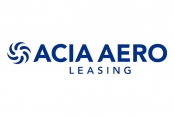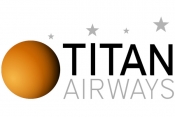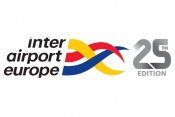BBGA works to make 'Aviation Services' recognised in apprenticeship schemes.
Friday 20th March 2015
A key focus of the BBGA these past 12 months has been to achieve wider recognition for the group of apprentice skills that fall under the umbrella of Aviation Services - as distinct from Aerospace. Aerospace manufacturing is widely recognised by the Government and in the past has been seen to embrace all activities within the sector. That emphasis has now changed with Aviation Services emerging as a much larger sector, encompassing skills in Ground Operations, Flight Operations and Airworthiness - across our industry.
The BBGA training team chaired by Carole Leach MD of AQMS has worked diligently to develop new Apprenticeship Standards specifically tailored to our sector. The UK Government's initiative for 'Trailblazer' apprenticeships was initiated in 2013 calling on the industry to lead the development of apprenticeship programmes to meet the needs of the sector. The rationale for this is that unless an apprenticeship is approved and registered through the Trailblazer process it would not be recognised, nor funded by the Government.
BBGA reports early success working closely with the CAA to gain accreditation for professional qualifications (Part 66) through academic qualifications, which form part of an individual's vocational training. Where in the past much of what was undertaken in an apprenticeship and examined was then repeated and re-examined within Part 66 professional qualifications, in practice it tended to become a serial process so that the time taken to attain professional qualifications was extended.
The new approach shortens those timeframes ensuring that individuals have both the technical skills and the competency to deliver such skills in the work place, as a maintenance fitter or technician. They also meet - where appropriate, Category A and B licenses for Airworthiness, Planning, Quality and Safety Technicians, meeting requirements of Part M within the MRO or Part M approved organisation. Individuals completing these apprenticeships will also be eligible for recognition as EngTec by the RAeS or other relevant Professional Institutions.
BBGA's team included Carole Leach, who steered the Airworthiness initiative and John Bool (Technical Director of Harrods Aviation) who led two apprenticeship programmes:
- Airworthiness Planning, Quality & Safety Technician Standard
- Aircraft Maintenance Certifying Engineer Standard
Considering this qualification had never existed in the past, which also required development of the National Occupational Standards (NOS) to provide the building blocks, it was some achievement.
The second apprenticeship championed by John, on behalf of the industry, was created to deliver Part 66 Cat B licensed engineers. This arms individuals with the necessary skills, competency and awareness of their working environment so that they are really prepared to fulfil a role in the workplace.
These two Standards build on work carried out by the industry to develop the Apprenticeship Standard for the Aircraft Maintenance Fitter/Technician which aligns the craft skills necessary for the majority of aircraft maintenance activity to an apprenticeship and also allows employers to identify candidates for the A licence and obtain government funding for the EASA licenses for the first time.
"Our industry needs to focus on competency and the best way to deliver that is to ensure that we enshrine the requirement into our basic apprenticeships," said Marc Bailey, CEO of BBGA. "For the future it is important that industry continues to take the lead on what we require. In the past this has tended to be the domain of Further Education establishments and, whilst much of what was delivered was well intentioned, it did not deliver the necessary competency for our community. Industry must ensure that we maintain our lead and it is important that this is done across Aviation Services so that those from light GA, through business aviation to scheduled airlines are provided with the necessary tools to develop the staff they need for the future."
As part of it work on this BBGA has partnered with other sectors within Aviation Services to pool its skill sets. It has joined the Aviation Industry Skills Board, an industry led initiative and it is the intention to use this body to help further shape the future of Aviation Services.
There may be an opportunity in the future with the formation of a new Government to gain more formal recognition as an industry body so that we are able to maintain the necessary focus and deliver what is required in each of the identified streams.
As more apprenticeships or other elements of training are required within each stream we will be looking towards established industry centres of excellence to deliver the courses. By using additional capacity within established facilities this will not only give access to SME's in the region it will also benefit the centres of excellence to help grow their skills and contribute to their profitability. In this way industry can work together we can focus on selecting people to join our industry to fulfil genuine positions with employment.
"Whilst Degrees and Masters Courses have their place within our streams, they are not the answer to the demographic cliff that we are facing. We need vocational skills and competency to replace an aging workforce and it is important that we all play our part in selling this option as a way to a future in our sector. What we can offer is an interesting and exciting environment in which to work. We can also offer employment and from a young person's perspective it is a really positive way to secure employment in a thriving industry without incurring significant debts through student loans," Marc added.
"There is a lot of work to do before we get this approach fully established but these first steps are really valuable and I am sure that we will continue to build on this excellent start," he concluded.
Latest News

Friday 11th July 2025
ACIA Aero Leasing signs agreement for sale of first ATR72-600 Large Cargo Door Freighter to FedEx







Get Social
Twitter Linked in Facebook Instagram